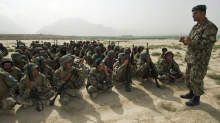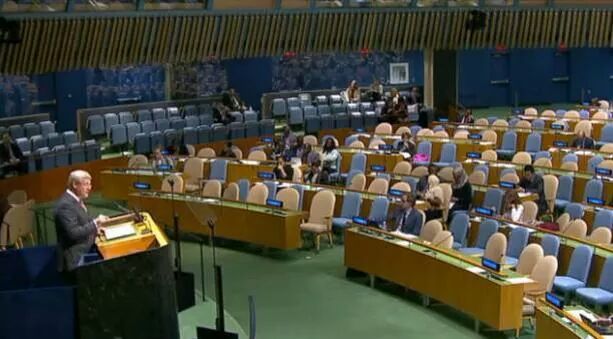
Harper’s Afghanistan War Ends in 2014
The war that Stephen Harper pushed forward throughout his term is coming to an end and based on his body language, he became bored with it. Let us be reminded of how much effort and time Harper put into this war.
Rocking and yawning during speeches by the NATO Commander and US President Barack Obama, Harper left the summit pledging $130 million per year for the next 3 years after Canada’s exit (2015-2018) and confirming that by 2014, Canadian troops would be out of Afghanistan.
“There will be no Canadian military mission to Afghanistan after March, 2014,” Harper said.
“My judgment is that a foreign presence, in the long term, cannot be the final resolution of the problems in Afghanistan. That the longer a foreign intervention stays, eventually the less likely its success becomes,” he said.
“And you know,” he added, “it’s an awful long time.”
This new position is a complete 180 of what Harper campaigned on and said throughout much of his mandate.
In 2009, Harper said clearly and definitively that Canada would pull out of Afghanistan in 2011.
“The position of the government is clear. The military mission in Afghanistan will end in 2011. I have said it here and I have said it across the country. In fact, I think I said it recently in the White House.”
Stephen Harper said to the House of Commons, October 2009
But in 2010, Harper decided to extend the mission and said:
“But as we approach that date [July 2011], the facts on the ground convince me that the Afghan military needs further training. … I think if we can continue a smaller mission that involves just training, I think frankly that presents minimal risks to Canada but it helps us ensure that the gains we’ve made are continued. … So I do this with some reluctance but I think it is the best decision when one looks at the options.”
Stephen Harper said in a News Conference, November 2010
Harper was so committed to the war that he extended the mission without bringing a vote to the House of Commons which would have likely been defeated in the minority Parliament.
“My position is, if you are going to put troops into combat, into a war situation, I do think, for the sake of legitimacy. . . the government does require the support of Parliament. But when we’re talking simply about technical or training missions, I think that is something the executive can do on its own,” Harper said in 2010, insisting that he didn’t have to vote on the extension in the House of Commons.
Now, in times of economic constraint and austerity, Harper pledges $130 million over the next 3 years to help build the Afghanistan defense force. The mission has cost Canada over $18.1 billion as of 2011 (meaning $1,500 per Canadian) and for a Prime Minister that rocks his chair in a bored fashion, he should know that Canada has contributed more than enough and that Canada simply cannot afford to send any more money to Afghanistan.
This is the message that American President Obama sent, stating that the money that is needed to rebuild Afghanistan would be put to better use rebuilding the United States.
While Harper said unequivocally that he would leave Afghanistan in 2011, he changed his mind. Recently, he said much of the same of what he said last time. Prior to this announcement, the Defense Department and Harper expressed openness to extending the mission yet again.
Is the Afghanistan war over? Is it financially justified to be sending more funds to the war torn country – given what Canadians have had to sacrifice back home?




